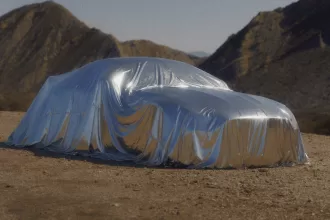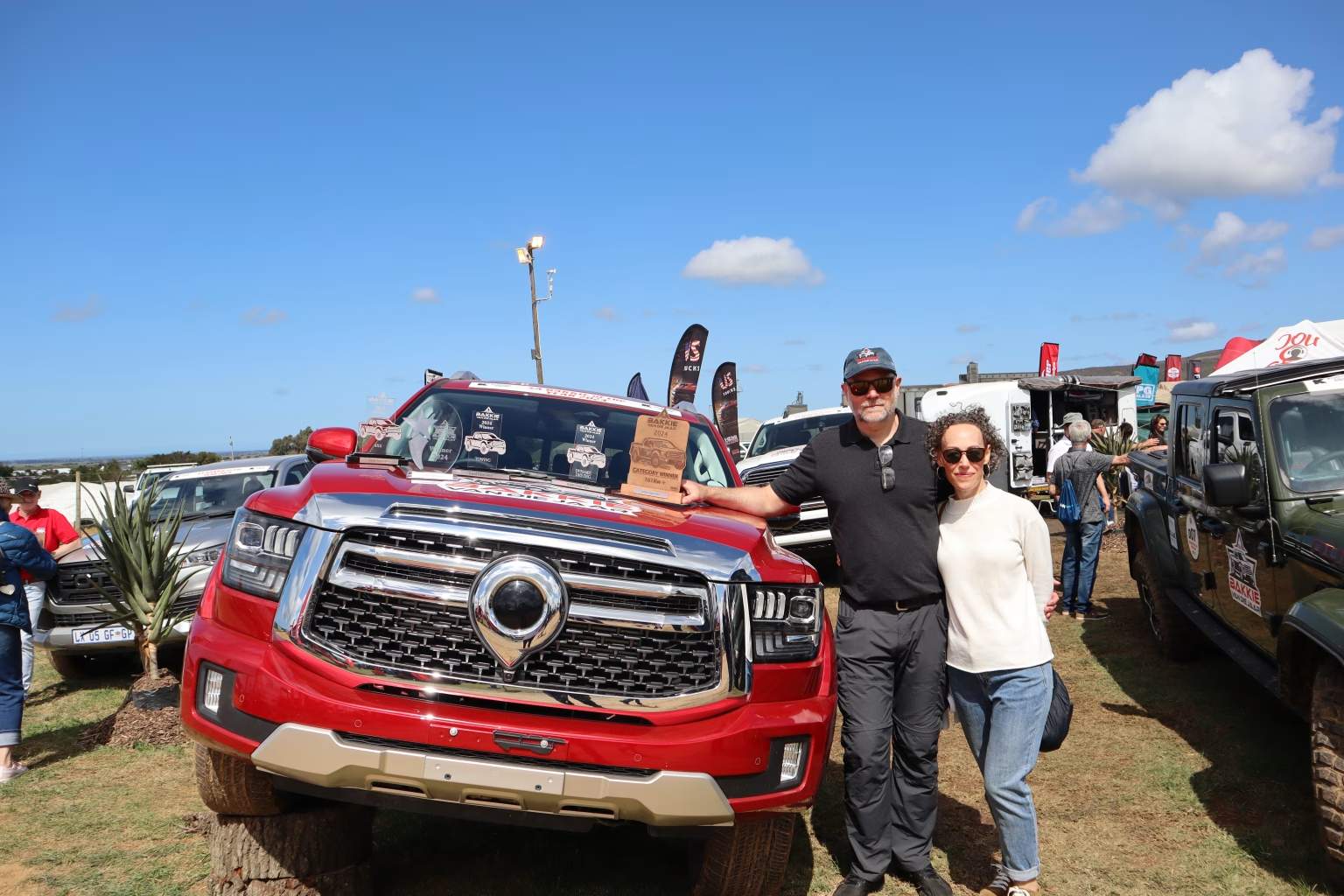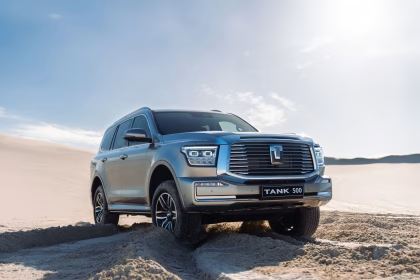After an extensive evaluation of the eight official contestants in the 2024 South African Bakkie of the Year competition, with the entrants in the four different categories assessed in three distinct disciplines (4×4 driving and capability tests, off-road performance tests, and towing performance on- and off-road), the outcome of the gruelling tests delivered some surprising and interesting results…
Announced at the NAMPO Cape exhibition in Bredasdorp, the largest agricultural hub in the greater Agulhas area, the competition not only delivered the first hybrid vehicle winner in the country but also the first win by a Chinese manufacturer in the highly contested bakkie arena – with the GWM P500 HEV Ultra Luxury 4×4 9AT crowned as the winner of the 2024 South African Bakkie of the Year (SABOTY) competition.
Established last year, the purpose of the annual competition is to evaluate and appraise specific requirements, as well as expected critical performance measurements, addressed and evaluated in a comprehensive, yet measurable, repeatable, and verifiable manner, in order to select the best bakkie introduced in that country in the specific year.
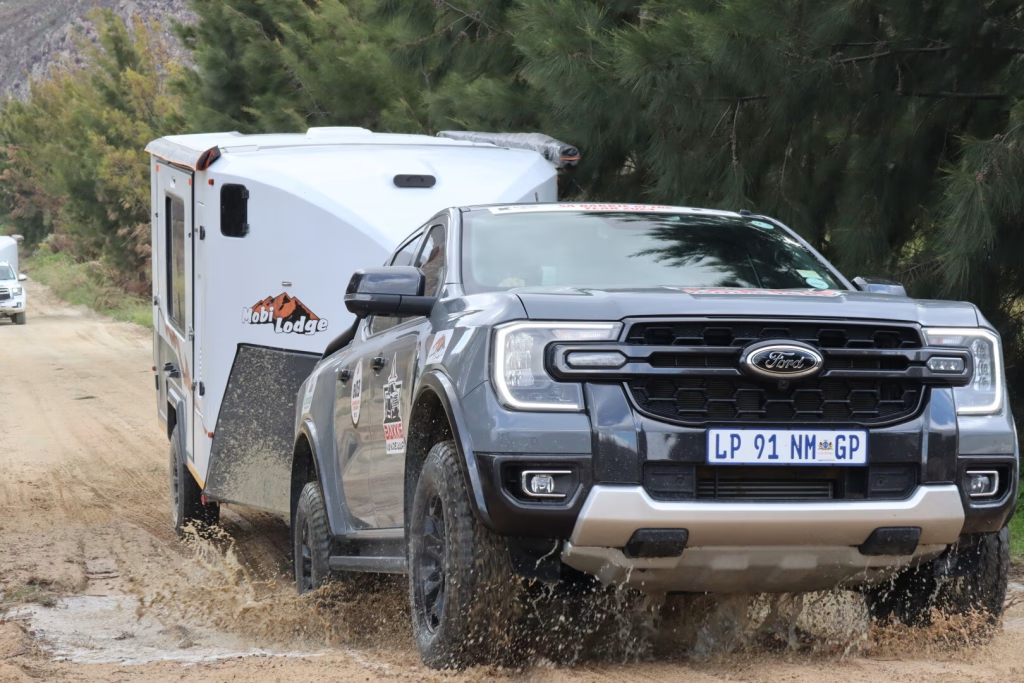
GWM HEV SETS NEW STANDARDS
The new Great Wall Motors (GWM) P500 HEV Ultra Luxury 4×4 9AT, which was introduced in South Africa very recently, impressed the Bakkie of the Year jury teams, consisting of leading specialist motoring journalists and industry experts, with its highquality interior, ultra-high specification level, comfortable on- and off-road ride performance, impressive handling dynamics and superior towing capability.
So imposing was the GWM P500 HEV Ultra Luxury 4×4 AT that it not only won overall, and in its class but was also adjudicated as the winner in the towing category, as well as in the driving dynamics and off-road and 4×4 categories. In similar fashion, its smaller sibling, the GWM 2.4 T 9AT 4X4 Luxury, was adjudged the winner in its class.
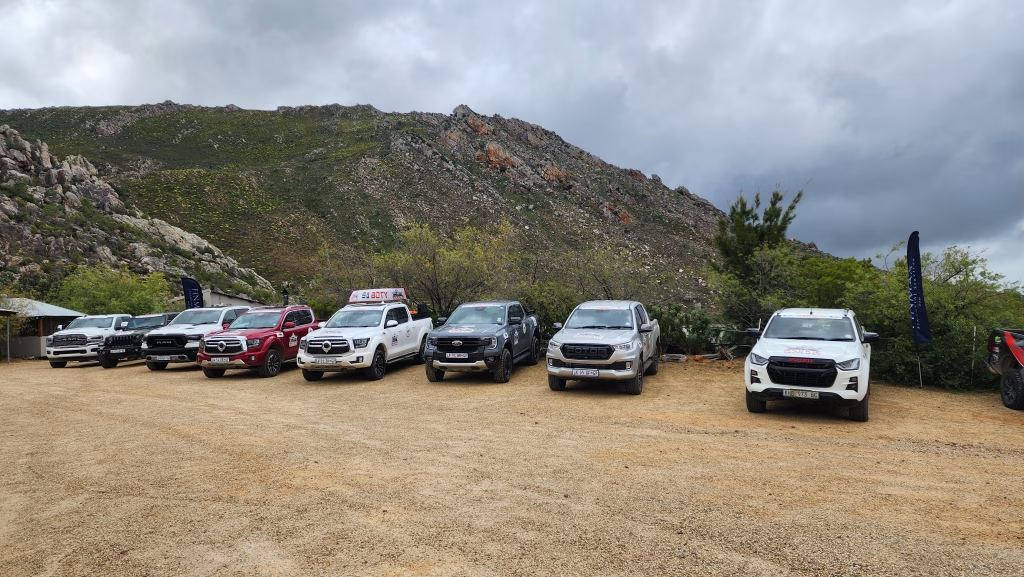
As with the inaugural competition last year, the entrants were divided into three categories based on engine power output (Category A from 100 kW to 125 kW, Category B from 126 kW to 160 kW, and Category C from 161 kW and above). However, this year another category – the specialist category for purpose-built 4×4 double-cab bakkies – was added. In terms of the categories, the Foton Tunland G7 4×4 8AT TLX and Isuzu D-MAX 1.9 X-Rider 4×4 AT competed in the 100-125 kW class, the Ford Ranger 2.0 Bi-Turbo Tremor 4WD 10AT and GWM P500 2.4T 9AT 4X4 Luxury in the 126-160 kW class, the GWM P500 HEV Ultra Luxury 4×4 9AT (hybrid) and RAM 1500 5.7 V8 HEMI Rebel 4×4 RHD (petrol) in the 161kW to 200 kW plus class, and the Jeep Gladiator Rubicon 3.6 V6 8AT (petrol) and RAM 2500 6.7-litre Laramie (diesel) in the Specialist class A Ford Ranger Raptor 3.0 Twin Turbo V6 AWD 10AT was an unofficial entrant in this class but while evaluated, its results were not taken into account for the competition. The Raptor, with its cult like following in SA always create excitement with its purpose-built qualities.
After rigorous evaluation in the different disciplines, all the points were tallied and audited (including the cost of ownership, as supplied by Lightstone, and value for money in terms of retail price, warranties and service plans); and the winners of the different categories were decided:
100 – 125kW category: Foton Tunland G7 4×4 8AT TLX
126 – 160kW category: GWM P500 2.4T 9AT 4X4 Luxury
161+kW category: GWM P500 HEV Ultra Luxury 4×4 9AT
Specialist category: Jeep Gladiator Rubicon 3.6 V6 8AT (petrol)
In terms of the lowest cost of ownership, the Isuzu D-MAX 1.9 XRider 4×4 AT was adjudged to be the winner.
All double cab 4×4 bakkies introduced locally from September 2023 to August this year were eligible for participation in this second annual Bakkie of the Year competition. This disqualified manufacturers such as Volkswagen (winner of the inaugural Bakkie of the Year competition with the Amarok PanAmericana 3.0 V6 TDI 4MOTION 10-speed auto), Mahindra, Mitsubishi, Nissan and Peugeot.
Manufacturers and distributors invited to participate in this year’s competition were Ford (Ranger Tremor, Platinum and Raptor), Foton (Tunland G7), GWM (P500 2.4 and HEV), INEOS (Grenadier Quartermaster), Isuzu (D-MAX 1.9 X-Rider), JAC (T9), Jeep (Gladiator facelift), LDV (T60 Pro and Max Luxe), RAM (1500 and 2500) and Toyota (Hilux 48V, Hilux GR-S III and Land Cruiser 79). Some declined the invitation, including JAC, INEOS (as they wanted to enter the Grenadier Quartermaster diesel model but this was not available in time), LDV (they actually entered but then withdrew at the last minute, apparently due to specification changes for their T60 range) and so also Toyota who indicated the Hilux range is now nearing the end of its life cycle and thus will not be as competitive against the latest market entrants.
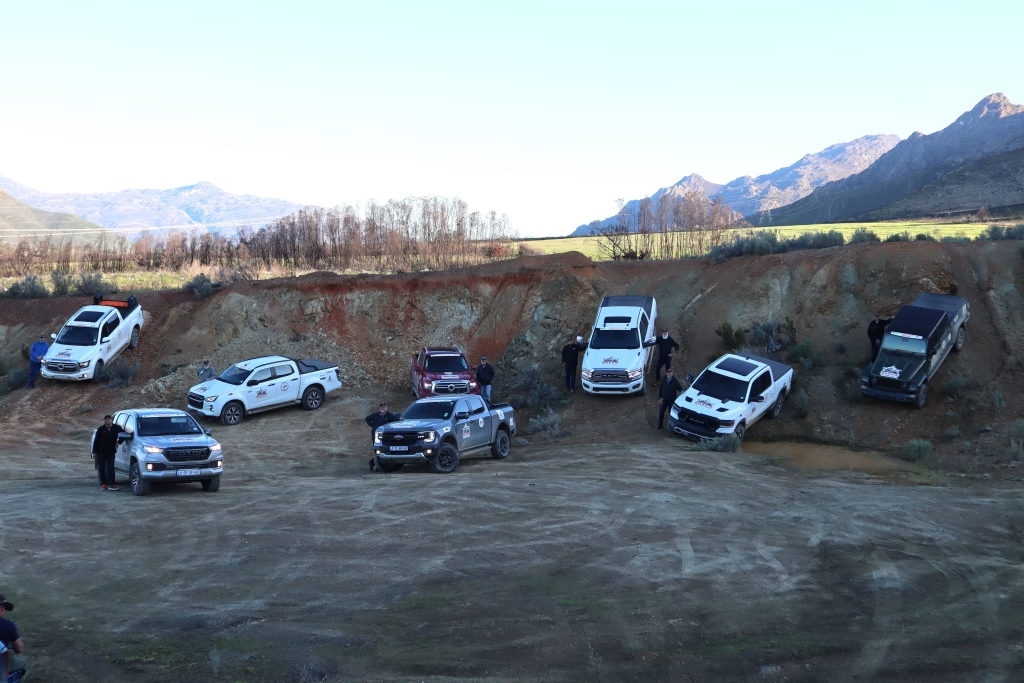
The entries received were (in alphabetical order) Ford (Ranger Tremor), Foton (Tunland G7), GWM (P500 2.4 and HEV), Isuzu (D-MAX 1.9 X-Rider), Jeep (Gladiator Rubicon) and RAM (1500 Rebel and 2500 Laramie), through local agents US Trucks based in Richards Bay. “While we would have liked to see representation from all the brands with eligible models, we did receive a credible list of entries this year, with interesting contestants, such as the two models from the highly pedigreed American brand RAM, as well as the first hybrid bakkie model available locally,” says Director and Convenor of the Bakkie of the Year competition Dirk Gallowitz.
“Although the competition this year again was aimed primarily at double cab leisure bakkies, the new specialist category brought a new dimension to the contest, allowing for specifically designated bakkie derivatives to be entered,” Gallowitz added. “What this fascinating mix of models have showed, is how far and fast things have moved in the bakkie market, in only one year…”
All dynamic tests (acceleration and brake tests) were conducted back-to-back on the same road and captured with VBOX technology. Interestingly, according to the results the line-up for this year’s competition included the three fastest accelerating production bakkies in the country… The Ranger Raptor (not surprisingly) was fastest but surprisingly, the big and heavy HEMI V8 RAM 1500 Rebel and the hybrid powered GWM P500 HEV were very evenly matched.”
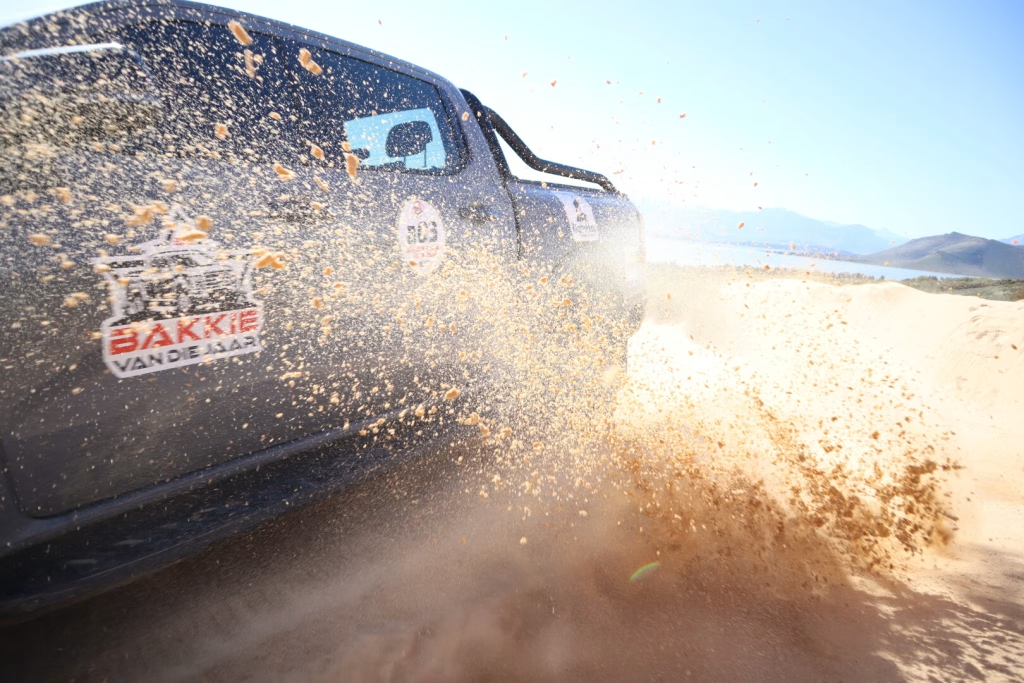
All measurements, including unloaded weight, wheel articulation, as well as approach, departure and breakover angles were taken, and here the Jeep shone, as can be expected of a bakkie developed for off-road purposes. However, its long wheelbase made crossing sharply angled obstacles tricky, while the RAM 1500 Rebel with its big standard tyres, easily dealt with any hurdle. Remarkably, all the contenders proved very capable in off-road conditions, with the ride quality of the two GWM P500 models and the RAM 1500 Rebel a standout factor.
The towing tests – With a fully equipped Mobi Lodge Continental off-road caravan with a base weight of roughly 1.5 tons hooked to the towbar , was conducted in wet, wild and windy conditions, and here the huge RAM 2500 Laramie (it is more of a truck than a bakkie…) with its big 6.7-litre diesel engine excelled. Yet, the big RAM was marginally outscored in this discipline by the two P500 bakkies on account of their overall performance.
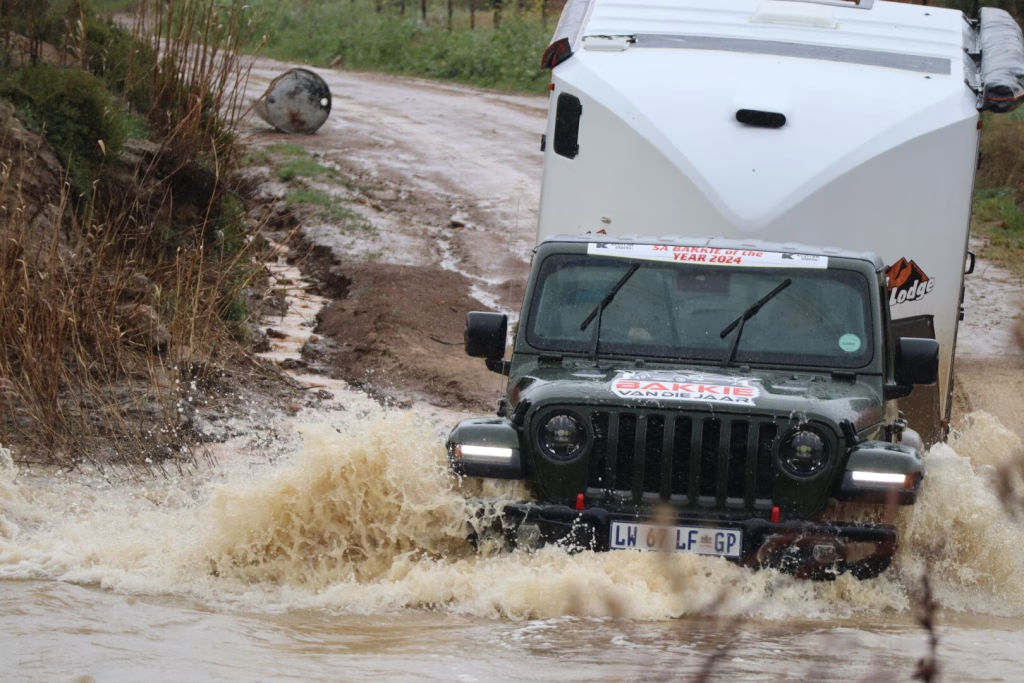
Even so, the bakkies with smaller displacement engines such as the Isuzu and Foton held their own, remarkably so… as none of them struggled to pull the 1. 5 T caravan, even on uphill slopes.
In terms of dynamic handling, the Ranger Tremor made its mark in the standard double-lane change and slalom tests, but it was let down by its somewhat harsher ride (in part due to its more aggressive, off-road orientated suspension and tyres) compared to the two GWM models, while the Jeep surprised many with its good on-road manners.
What really did impress, though, was the high-quality and high equipment levels in the interior of the GWM P500 models relative to their retail prices, as well as their superior ride quality (in most part due to their more advanced chassis, derived from the Tank 500) over all kinds of terrain. “For the evaluation, every conceivable aspect and feature a Bakkie owner would consider was taken into account,” says Gallowitz.
“With over hundred and fifty line items in total on the score sheet, not only are all the basic amenities and characteristics covered but factors such as cost of ownership is taken into account,” he added. “This includes cost of insurance cover, tyre replacement costs, fuel costs over time, as well as deprecation in value over time. All this comes into play before the scores are tallied and checked, in order to determine the class winners, as well as the overall winner of Bakkie of the Year.”



